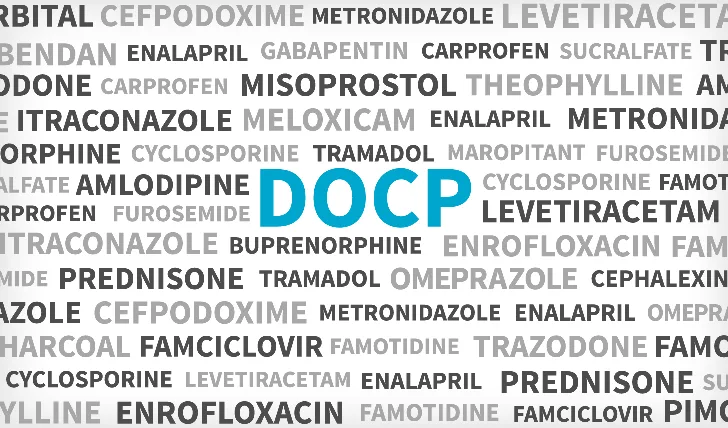
Mineralocorticoid (Systemic Drug)
Prescriber Highlights
Parenteral mineralocorticoid used to treat hypoadrenocorticism (ie, Addison’s disease)
Does not contain any glucocorticoid activity; a glucocorticoid must be used concurrently in the treatment of Addison’s disease
Adjust dosage based on monitoring parameters
Uses, Indications
Indicated for the parenteral treatment of adrenocortical insufficiency (ie, Addison’s disease) in dogs
Used extra-label for the same indication in cats
Contraindications, Precautions, Warnings
Contraindications
Patients with hypersensitivity to DOCP, congestive heart failure, severe renal disease, primary hepatic failure, or edema
Precautions
Some animals may be more or less sensitive to the drug’s effects; dosing without ongoing monitoring is inappropriate
Do not administer intravenously as acute collapse and shock may result
Warnings
Animals suffering from hypovolemia, prerenal azotemia, and inadequate tissue perfusion must be rehydrated with intravenous fluid therapy before starting DOCP
Side Effects
Possible irritation at the injection site
Depression, lethargy, vomiting, anorexia, polydipsia, polyuria, panting, diarrhea, facial and muzzle edema, urticaria, anaphylaxis, urinary tract infection, urinary incontinence, restlessness
Anemia following injection has been reported
Drug Interactions
Concurrent use with amphotericin B or potassium-depleting diuretics may result in hypokalemia
Potassium-sparing diuretics may counter the DOCP effects
May reduce salicylate levels when used with aspirin
Use in diabetic patients may result in increased insulin requirement
Monitoring
Serum electrolytes, BUN, creatinine
Body weight, physical examination, evidence of edema
Client Information
Most commonly injected into the muscle, but can be given subcutaneously
Must never be given intravenously
Shake the vial vigorously before drawing up into the syringe
Monitor for symptoms of the dose being too high (eg, increased thirst and urination, edema, weight gain) or too low (eg, lethargy, collapse, inappetence, weakness, vomiting, diarrhea)
Dosage Forms
Desoxycorticosterone pivalate injectable suspension:
25 mg/ml
‒Compiled and summarized from Plumb’s® Veterinary Drugs by Shannon Palermo, VMD
Information about this drug was adapted from Plumb’s® Veterinary Drugs. Further details and more therapeutics can be found with a subscription at plumbsveterinarydrugs.com